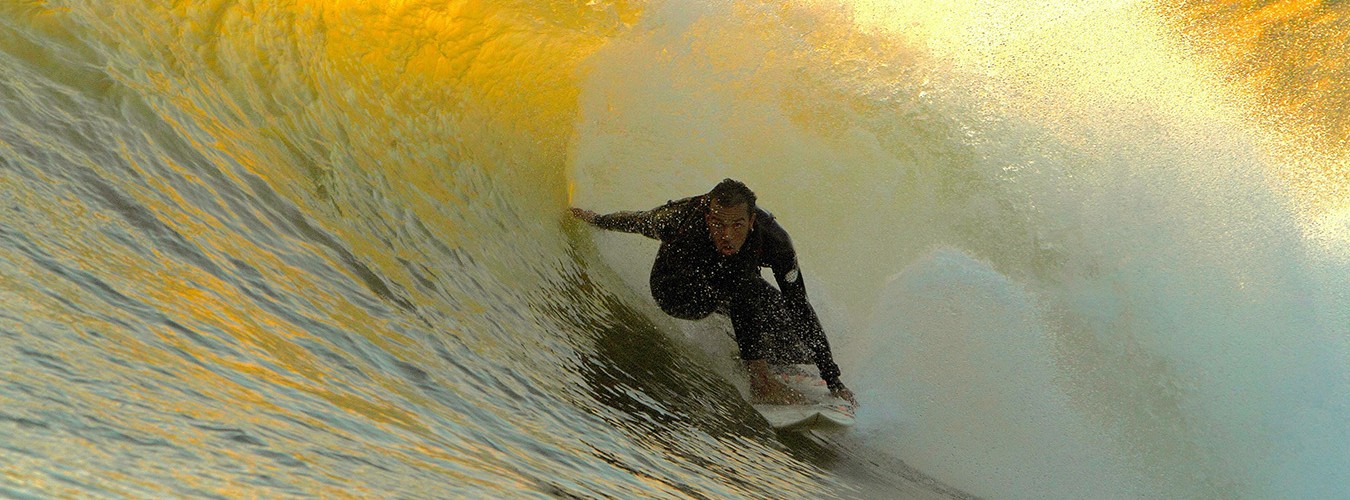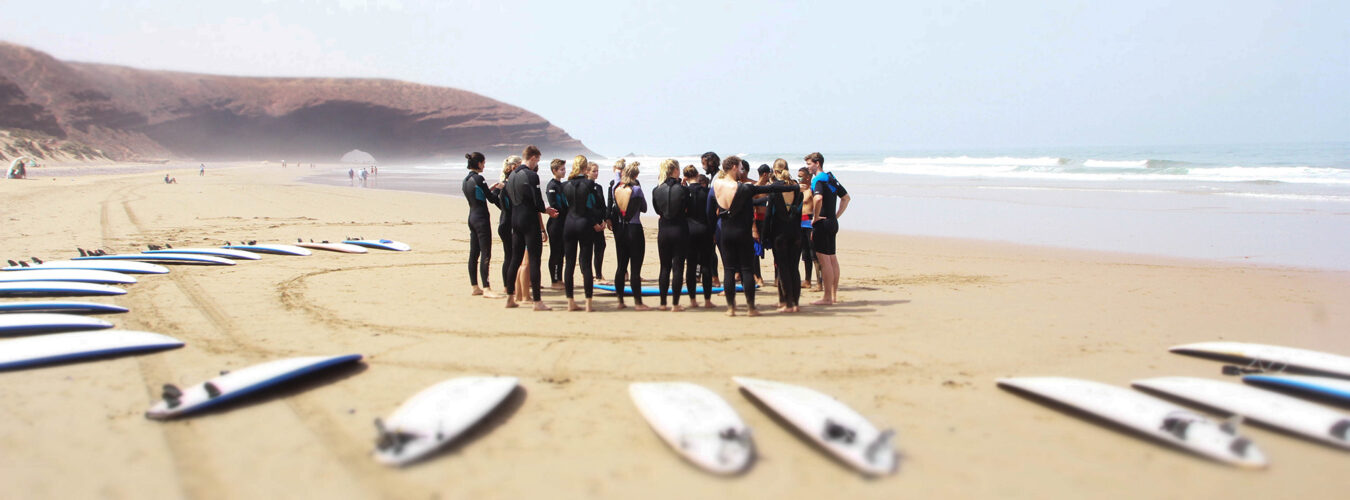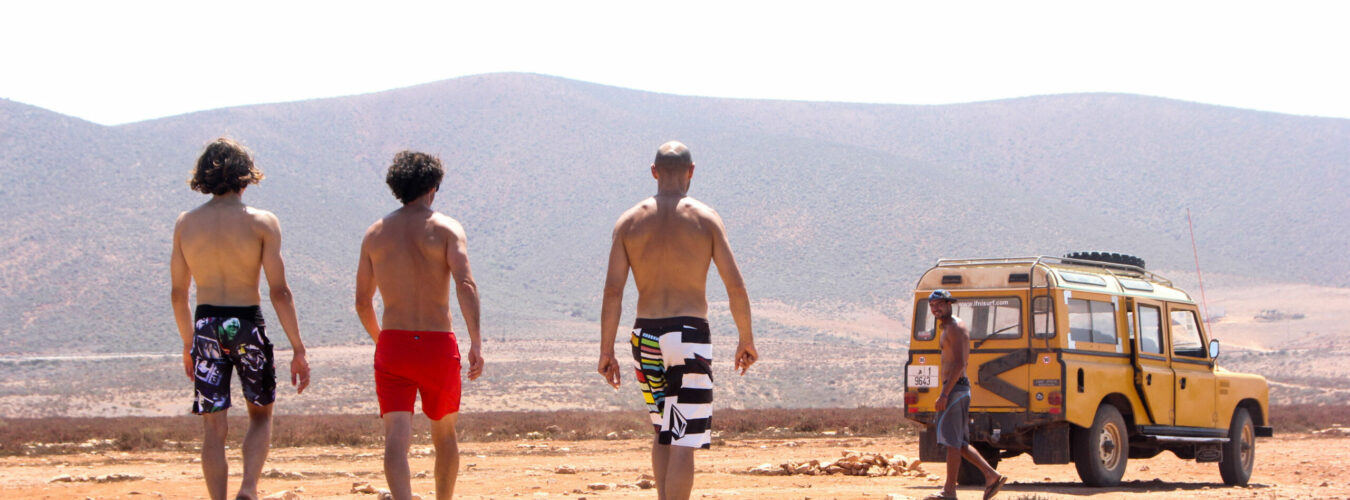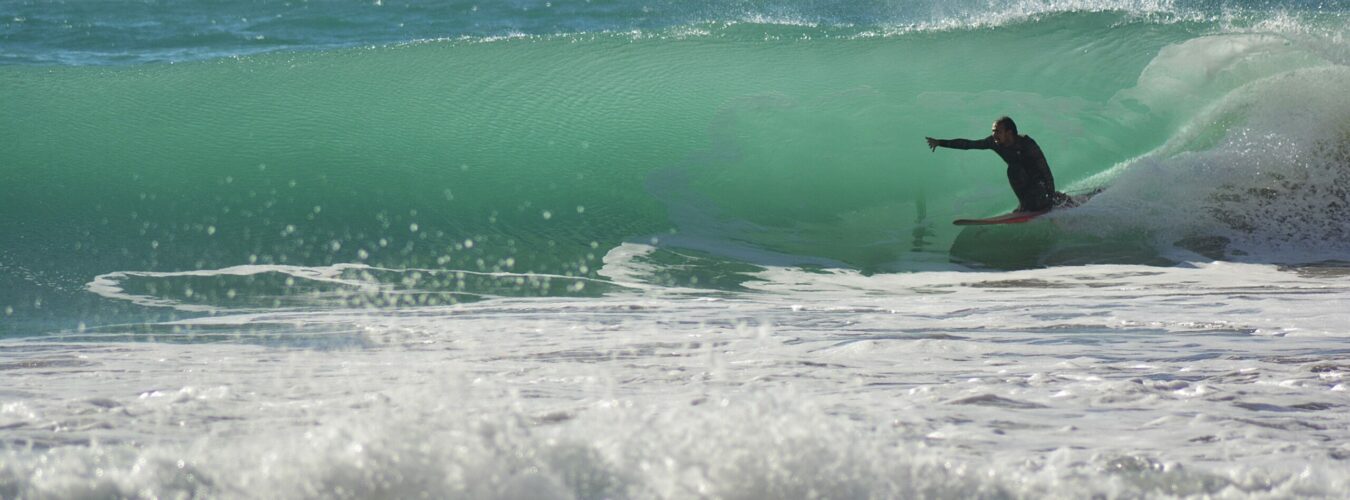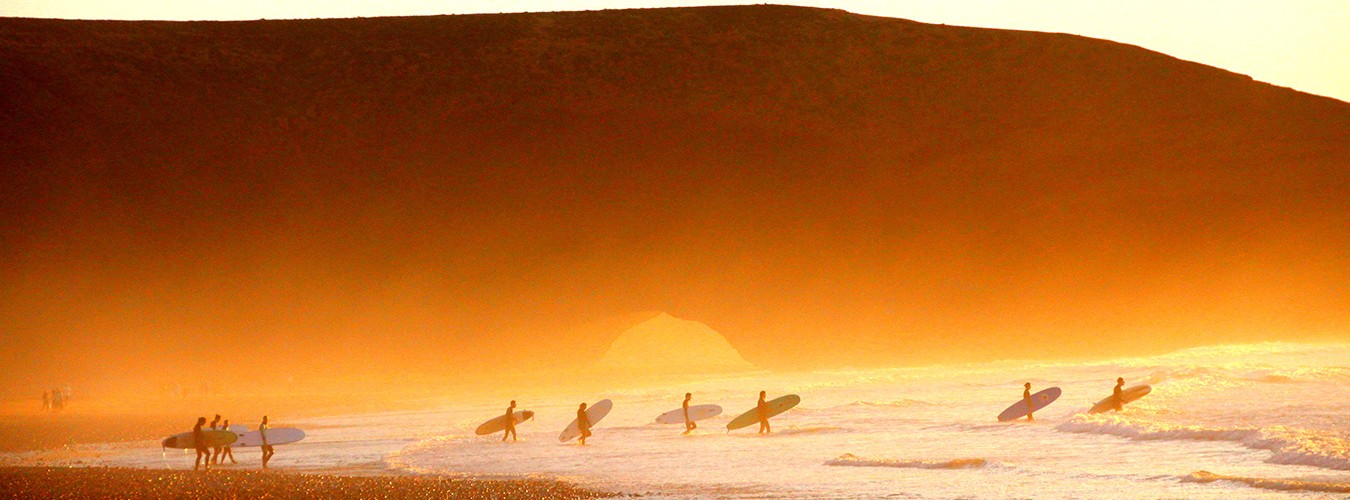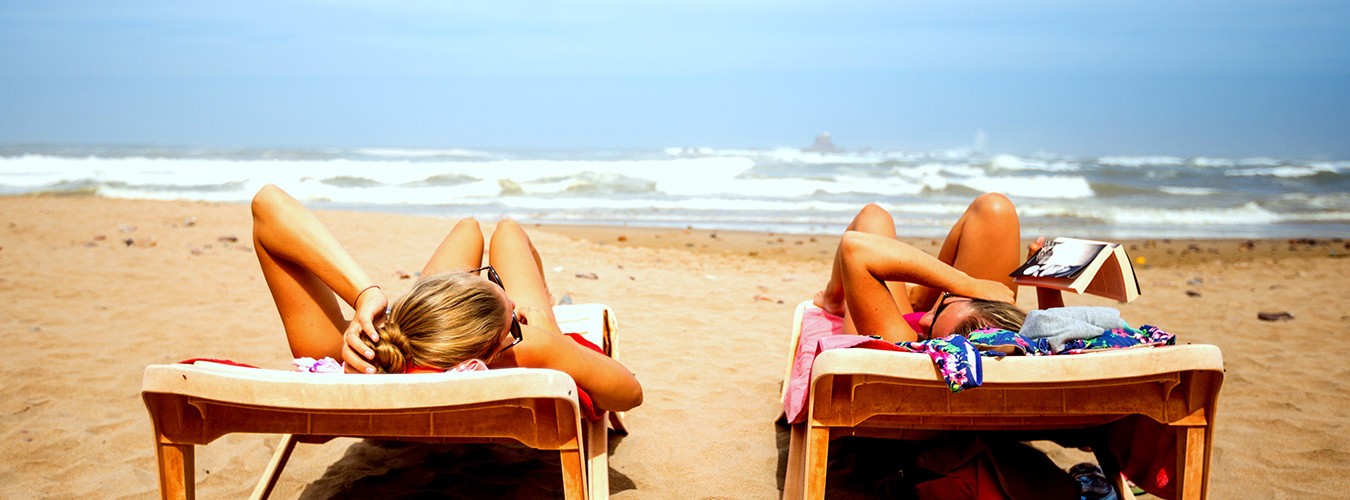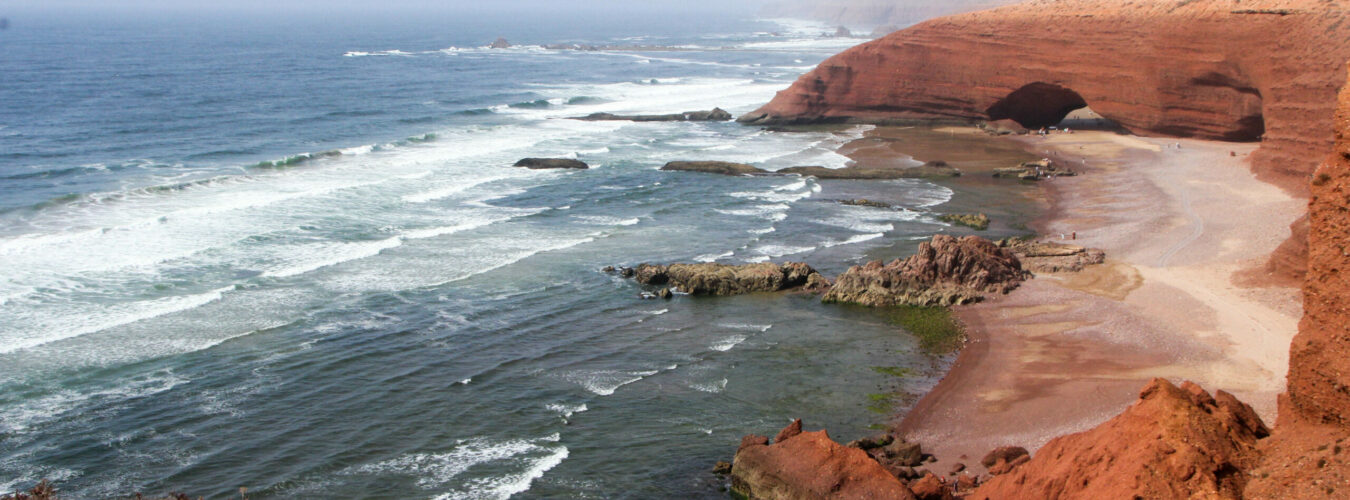WHERE IS IFNI SURF
Ifni Surf is located in Sidi Ifni, a city in southwest Morocco, on the shores of the Atlantic Ocean and nearly 160 km away from Agadir. It belongs to the SoussMassaDrâa economic region and to the Sidi Ifni Province.
HOW DO I GET THERE
From Agadir (distance 165 km): At the airport you can take a “grand Taxi” to Sidi Ifni. You can find them just in front of the exit. It is also possible to organize a taxi transfer in collaboration with a local chauffer whenever you want. You can also go by taxi to Ait Melloul, where you can take a bus to Sidi Ifni. Please check the timetable of the bus line on www.ctm.ma
From Marrakech (distance 395 km): At the airport you can go by taxi or by bus (19, Alsa) to the bus station of CTM or SUPRATOURS, where you find buses to Agadir or directly to Sidi Ifni (only CTM). Please check the timetable of the bus line on www.ctm.ma and/or www.supratours.ma
DO I NEED A VISA?
EU passport holders with a passport that is valid for at least 6 months beyond your return date,do not require a visa to enter Morocco for tourist purposes. If you hold a passport from outside the European Union we strongly recommend that you check with your nearest Moroccan Embassy.
WHAT IS THE SURF AND THE WEATHER LIKE? WHEN IS THE BEST TIME TO VISIT?
Sidi Ifni is an all year round destination for great surf and great weather. Ifni Surf is open all year. The summer months (April October) see small to medium swells. This is a great time for anyone looking for fun, uncrowded warm water surf. There are some bigger days during this time for those looking for something more challenging. During the winter months the waves come to life, those looking for something challenging won’t be disappointed. But also beginners and intermediates can have fun and progress. Morocco is blessed with well over 300 days of sunshine a year. Between the months November to February there is a small chance of rain, although statistically it is unlikely. The main wave is a long righthand wall breaking over boulder type rocks way on the outside. 2 lefts and the town beachbreak complete the panorama on the “promenade”. 2km to the south, a righthander breaks off the end of the harbor wall that protects an inside left when big (magicseaweed).
CAN I BRING MY CHILDREN
Children of all ages are welcome but we do not have specialized child care facilities.
HOW ABOUT CASH?
The Moroccan currency is the Dirham. Exchange rates are around 1€ = 10.72 MAD (17.01.2016). Dirhams can only be obtained within Morocco. There are exchange facilities and ATMs in the airport. There are also a few of ATMs in Sidi Ifni. Many ATMs in Morocco do not accept Maestro and can be unreliable, if you have a VISA card we recommend you bring it.
CAN I USE MY PHONE? IS THERE INTERNET?
Nearly all European networks work in Morocco. Contact your network for call charges. Coverage is good. There are some public phones (coin and cards) in Sidi Ifni. International call charges are relatively cheap. You can find free wi.fi available at our surf camp.
WHAT VOLTAGE AND PLUGS DO YOU USE?
Morocco is on 220 volts with twopin round plugs.
MEDICAL INFORMATION
No vaccinations are required for visitors to Morocco and antimalarial precautions are not necessary. There is a hospital in Sidi Ifni. Medical charges will apply according to the treatment received, so make sure you have travel insurance before you arrive. We have priority access to a very well stocked pharmacy near the market.
HOW DO I CALL MOROCCO?
The international country code for Morocco is +212.If calling from outside the country, you will need to dial your international operator code (+ on a mobile, or 00 for Europe, and 011 for the US and Canada) then the number. If you see a Moroccan phone number listed without 212 preceding it, you will need to add it. If calling locally, drop the 212 and add a 0 before the number.
IS IT SAFE TO DRIVE IN MOROCCO?
If you are renting a car, please ensure you have a valid EU driving license that shows you have been driving for at least one year. The law insists that you always carry your license and car hire documents with you when driving in Morocco. Seat belts must be worn at all times and mobile phone use while driving is a finable offense. Police and gendarmerie checkpoints are common along the routes and you must slow down or even stop and wait for them to wave you through. Watch out for police hiding with speed radar. They will stop you and fine you an onthespot payment. In Morocco, as in Europe, driving is on the right. The main roads in the area are relatively new though are generally narrower and may sometimes have bumps and potholes, especially after periods of rain.
HOW SHOULD I DRESS?
Morocco is a liberal Muslim country, and men and women are welcome to wear shorts and tshirts. Swimsuits and bikinis are expected on the beach, but nudity is not (please be discreet when changing). For women, it is advisable when walking around town or the city not to wear anything too revealing, and a scarf is handy for those occasions when you’re feeling a bit exposed in certain eyes. It can get chilly at night, and trousers and jumpers are needed particularly in midwinter, so make sure you bring some warm clothes too.
INSURANCE
It is your responsibility to obtain adequate travel insurance before your trip. Everyone booking a holiday with Ifni Surf must have full travel insurance. Ifni Surf accepts no responsibility for loss, theft, damage or injury to persons or property during their stay.
